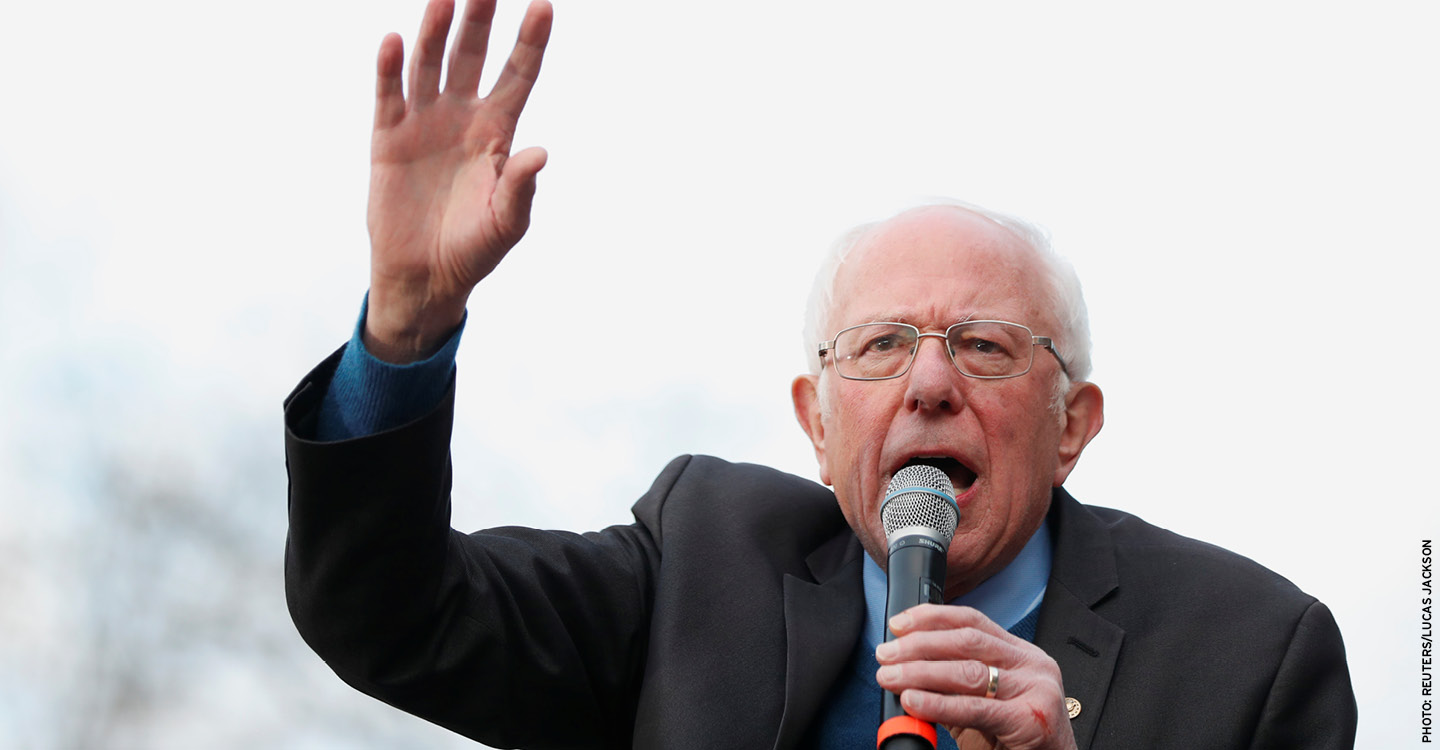Senator Bernie Sanders of Vermont dropped out of the Democratic presidential race on Wednesday. His exit establishes former Vice President Joe Biden as the presumptive nominee to challenge President Trump in November.
“The path toward victory is virtually impossible,” Sanders said in a video announcement from his home in Burlington, Vermont. “So while we are winning the ideological battle and while we are winning the support of so many young people and working people throughout the country, I have concluded that this battle for the Democratic nomination will not be successful.”
In a race reshaped, and eclipsed, by the escalating coronavirus crisis, Sanders faced no realistic path to the nomination after a series of lopsided losses to Biden, beginning in South Carolina in late February and culminating with a string of losses last month in crucial states like Michigan and Florida, both of which are expected to be hotly contested battlegrounds in the general election.
With the public health emergency preventing both candidates from holding in-person campaign events, Sanders spent the last several weeks on the sidelines, delivering addresses via live stream and making occasional television appearances, while facing growing calls from Democrats to drop out of the race.
“I cannot in good conscience continue to mount a campaign that cannot win, and which would interfere with the important work required of all of us in this difficult hour,” Sanders said.
Sanders, 78, leaves the campaign having almost single-handedly moved the Democratic Party to the left. He inspired the modern progressive movement with his expansive policy agenda and his impassioned message that “health care is a human right.” He electrified a legion of loyal supporters who wholeheartedly embraced his promise to lift up those who need it most. He also transformed the way Democratic campaigns raised money, choosing not to hold big fund-raisers and instead relying on an army of small-dollar donors.
Sanders, an Independent who caucuses with Democrats in the Senate, came to national prominence in 2016 when he challenged Hillary Clinton for the Democratic nomination. His progressive policies earned him wide support among liberals and young people.
A self-described democratic socialist, Sanders has pushed for liberal policies like “Medicare for all” and free four-year public colleges aimed at lifting up America’s working class. His relentless advocacy of these causes has helped put them on the mainstream agenda, political scientists say; many more Democrats now support many of Sanders’ progressive policy proposals.
“I want to commend Bernie for being a powerful voice for a fairer and more just America,” Biden said on Wednesday.
Sanders’ departure from the race is a striking turnaround for a candidate who less than two months ago was the clear front-runner, after finishing in a tie for first in Iowa and winning in New Hampshire and Nevada. And for a man who is loath to admit defeat, it is a concession that he saw no path to defeating Biden, who currently leads the delegate count by more than 300.
His exit is also a sharp contrast to his bid in 2016, when he stayed in an increasingly bitter primary race against Hillary Clinton even after it became clear she would be the eventual nominee.
Sanders promised to support Biden in his bid for the presidency and work to move his progressive policy agenda forward.
“While this campaign is coming to an end,” Sanders said on Wednesday, “our movement is not.”

